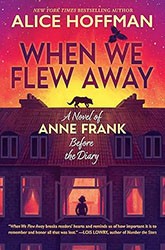The story of Rabbi Menasseh ben Israel, the great seventeenth-century rabbi of Amsterdam, is hardly the tale of fame and fortune one would expect. As expertly told by Professor Steven Nadler — author of Rembrandt’s Jews and Spinoza: A Life, among other well-researched volumes centered on the Dutch Golden Age — ben Israel’s life was mostly a tale of financial, political, and personal woe.
The offspring of the second marriage of a crypto-Jew who survived torture at the hands of the Inquisition, ben Israel demonstrated rabbinic talent at an early age. For many years he was a successful preacher, book publisher, and consultant, situated at the center of a pan-European network of Jews and non-Jews eagerly awaiting the arrival of the Messiah. Despite these accomplishments, however, he had a difficult time avoiding all manner of political and theological imbroglios over the course of his fifty-three years. He received a year-long suspension of his local rabbinic duties after cursing the leaders of his Jewish community, and was widely criticized for having close social relationships with, and even dedicating some of his Jewish scholarly works to, his Christian friends — who were themselves controversial within their own faith community.
His ability to earn a living was not helped by such matters, leading to numerous quixotic quests, including an attempt to become the exclusive purchaser of Hebrew books for the Queen of Sweden, and time spent investigating the report that Native Americans were identifying themselves as members of the Ten Lost Tribes of Israel. He also played a leading role in the long campaign (successful only after his death) to readmit Jews back into England, which, in his mind, would constitute the fulfillment of a biblical prophecy.
Though he died in poverty, there is much that ben Israel is to be admired for. His ceaseless and courageous efforts to inspire and educate Jews and gentiles both within and far beyond Amsterdam left him with a legacy that continues to live on.
Dr. Stu Halpern is Senior Advisor to the Provost of Yeshiva University. He has edited or coedited 17 books, including Torah and Western Thought: Intellectual Portraits of Orthodoxy and Modernity and Books of the People: Revisiting Classic Works of Jewish Thought, and has lectured in synagogues, Hillels and adult Jewish educational settings across the U.S.





